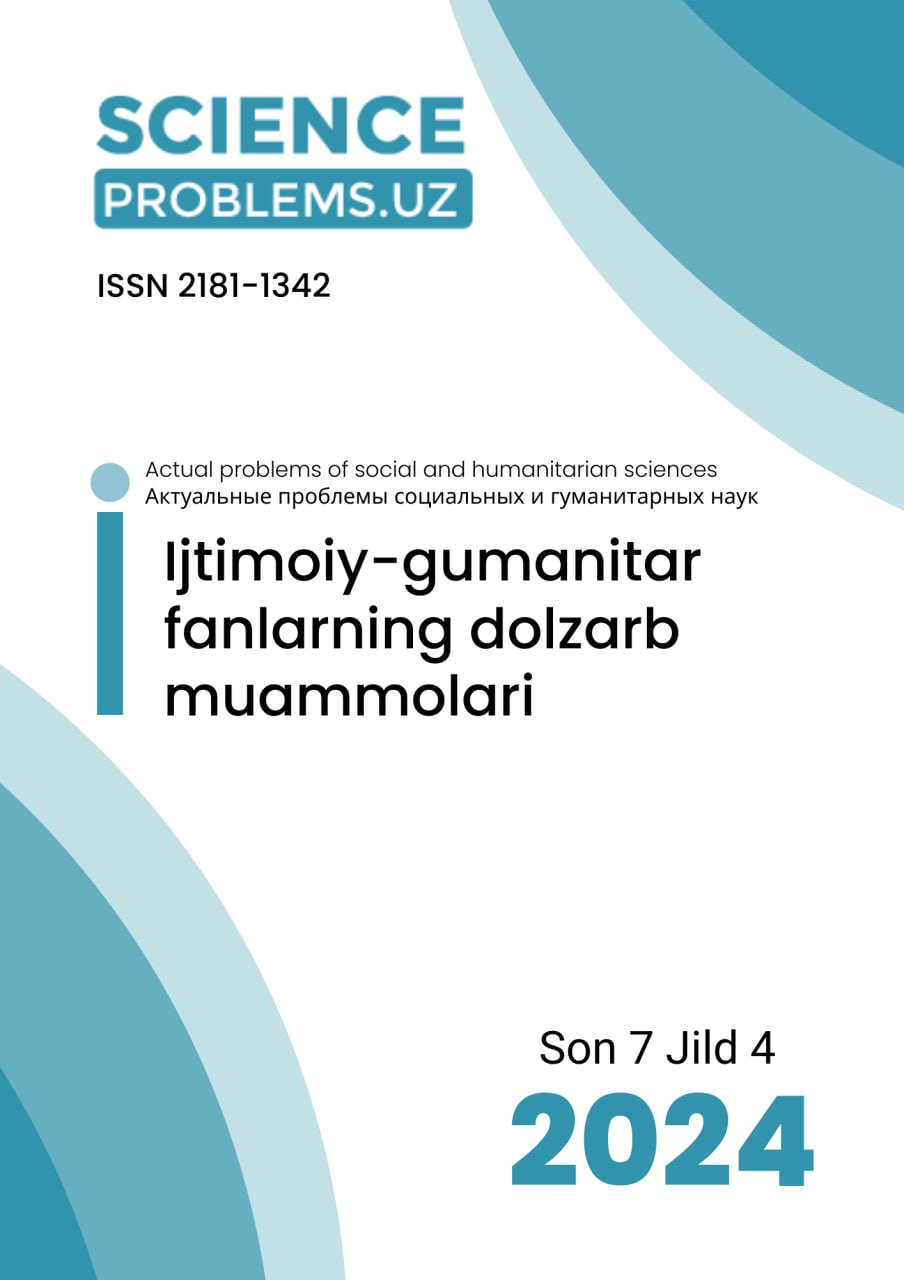ЗАМОНАВИЙ ЖАҲОН АДАБИЁТИДА ТАОМ ДИСКУРСИ
DOI:
https://doi.org/10.47390/SPR1342V4I7Y2024N25Ключевые слова:
таом дискурси, глюттоник дискурс, таомшунослик, маданий анъаналар, руҳият, маънавият, ижтимоий мавқе, истак ва ҳис-туйғу.Аннотация
Замонавий жаҳон адабиётида таом дискурси турли жамиятларнинг маданий ва ижтимоий қадриятларини акс эттирувчи кенг тарқалган мавзудир. У таомнинг турли жиҳатларини, масалан, уни ишлаб чиқариш, тайёрлаш, истеъмол қилиш, у билан боғлиқ урф-одатлар ва эътиқодларни ўз ичига олади. Адабиётда глютоник тасвир орқали адиблар таомнинг инсон ҳаётидаги аҳамиятини, унинг ижтимоий ва маданий ўзига хосликни шакллантиришдаги ролини, озиқ-овқат, жамият ва атроф-муҳит ўртасидаги ўзаро боғлиқликни ёритади.
Библиографические ссылки
“Food in Literature—Introduction.” Twentieth-Century Literary Criticism. Ed. Thomas J. Schoenberg and Lawrence J. Trudeau. Vol. 114. Gale Cencage, 2006. N.pag. eNotes.com. Web. 6 Feb. 2011.
Barad, K. (2003). Posthumanist performativity: Toward an understanding of how matter comes to matter. Signs: Journal of Women in Culture and Society, 28(3), P.822.
Combs, Mitch, "Food Discourse: The Communicative Gateway Toward Understanding Formerly Colonized Representation in Parts Unknown" (2018). Theses and Dissertations. 850. P.23. https://ir.library.illinoisstate.edu/etd/850
Davis, Delmer. “Food as Literary Theme.” Identities and Issues in Literature. N.p.: Salem, 1997. N. pag. eNotes.com. Web. 6 Feb. 2011.
Dawkins, N. (2009). The hunger for home: Nostalgic affect, embodied memory and sensual politics of transnational foodways. The Undergraduate Journal of Anthropology, 1, 33-42.
Edwards, M.E. (2011). Virginia ham: The local and global of colonial foodways. Food and Foodways, 19 (1), pp. 56-73.
Foucault, M. (1972). The archeology of knowledge. New York: NY: Pantheon.
Frye, J. & Bruner, M. (2012). The rhetoric of food: Discourse, materiality, and power. New York, NY: Routledge.
Houston, M. (2007). “Making do”: Caribbean foodways and the economics of postcolonial literary culture. Society for the Study of Multi-Ethnic Literature of the United States, 4 (32), pp. 99-113. https://ir.library.illinoisstate.edu/etd/850
Martin, Andy. “Food and Drink: Food for Thought: What We Eat and How We Eat It Says a Lot about Both Our State of Mind and the State of the World We Live in.” The Guardian 19 Aug. 1995: T30. Web. 9 Jan. 2011.
Stein, Mark. "Curry at Work: Nibbling at the Jewel in the Crown." Eating Culture: The Poetics and Politics of Food. Ed. Tobias Döring, Markus Heide and Susanne Mühleisen. Heidelberg, Germany: Universitätsverlag Winter, 2003. Print. P. 134.
Tuomainen, H. M. (2009). Ethnic identity, (post)colonialism and foodways: Ghanaians in London. Food, Culture & Society, 12(4), pp. 525-554.
Welch. P. D. & Scarry, M. D. (1995). Status-related variation in foodways in Moundville chiefdom. American Antiquity, 60(3), 397.
Г.К.ОДИЛОВА. ГЛУТОНИК ДИСКУРС АСОСЛАРИ. Тошкент “MUMTOZ SO‘Z” 2020. Б. 256.








